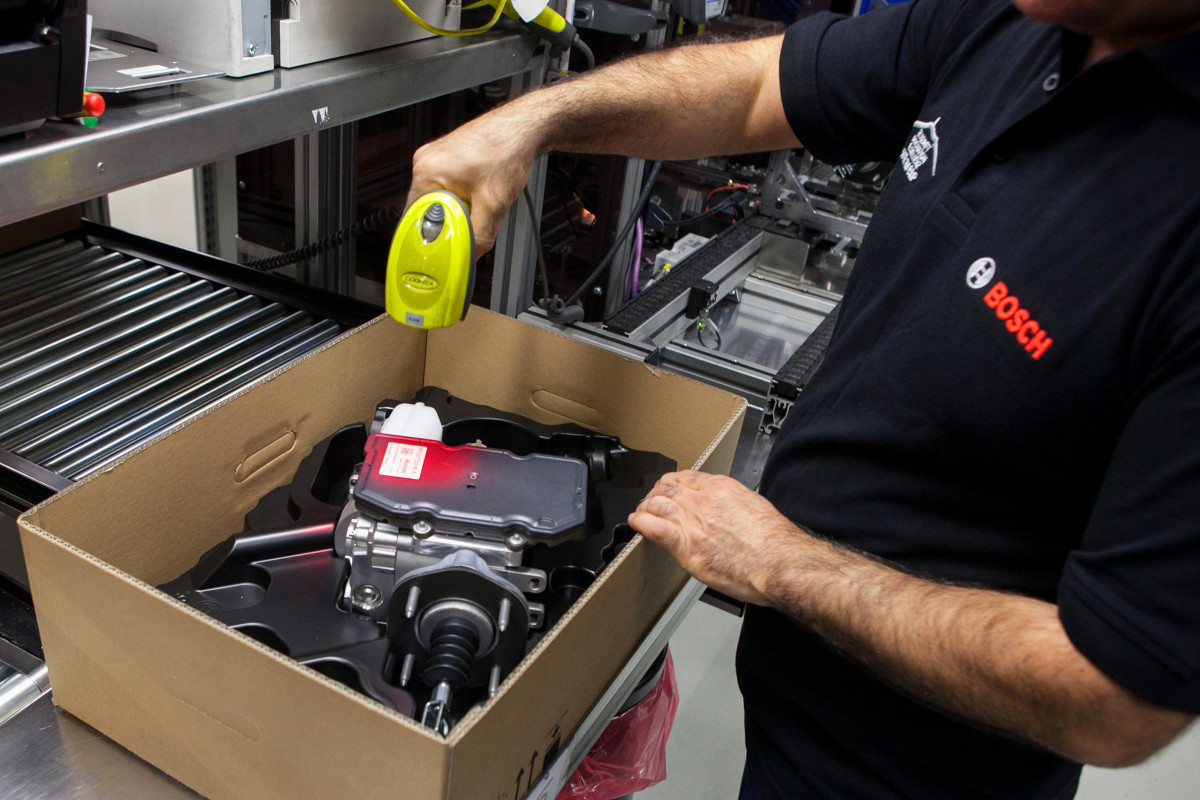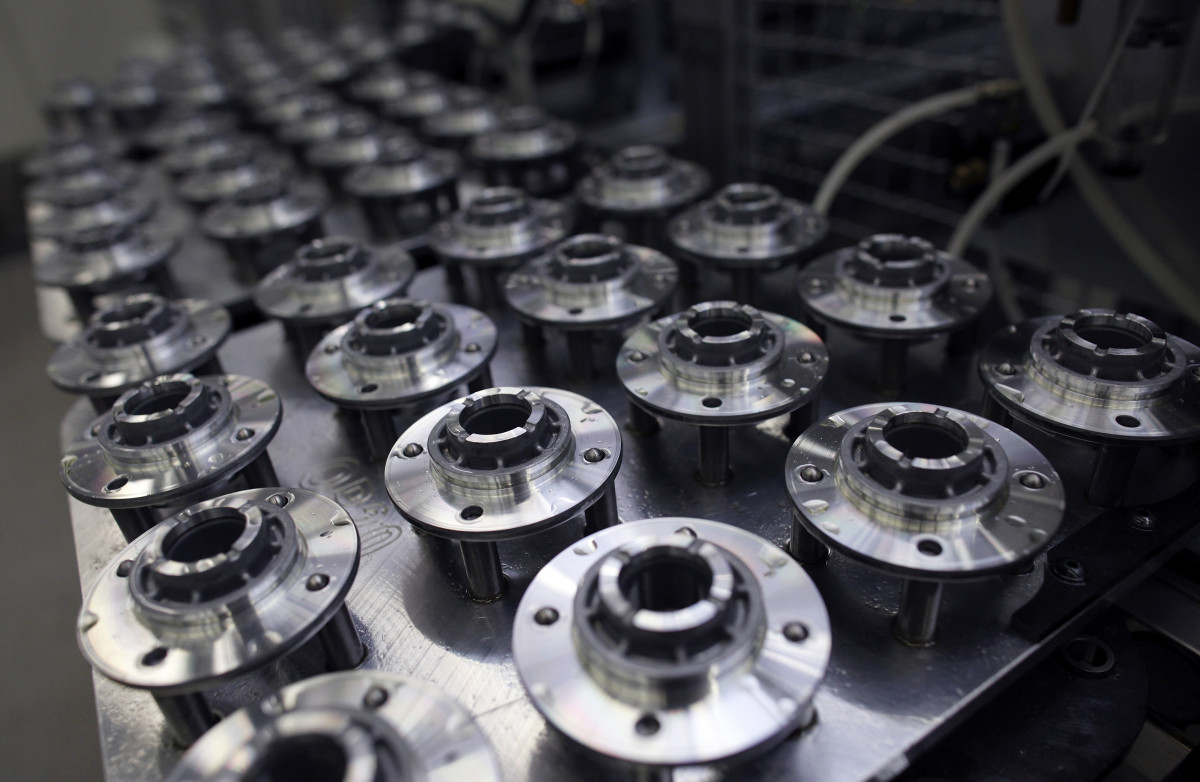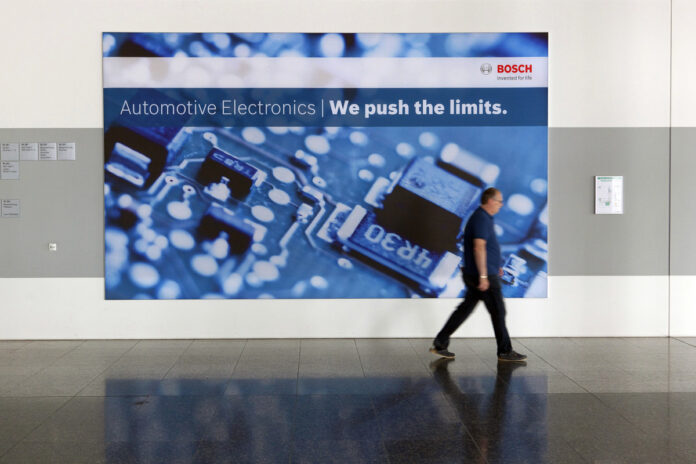Major moves are happening at Bosch
One of the world’s biggest auto parts suppliers, German firm Robert Bosch GmbH, known better as Bosch, is gearing up for some major change. According to new reporting from Bloomberg, the Tier 1 supplier announced that it will cut about 13,000 jobs, or roughly 3% of its global workforce by 2030, as it struggles with a weaker European car market, rising labor costs, and stiff competition from China.
Bosch has been making cuts for a while, but its mobility division, the part of the business that manufactures everything from spark plugs to software for self-driving cars, is still losing approximately €2.5 billion (~$2.9 billion) per year.
Getty Images
The company itself faces pressure from both sides; on one side, European demand for new cars is sluggish, and automakers are cutting back on orders. On the other hand, its Chinese competition and their far cheaper batteries, motors, and electronic components are making it challenging for Bosch and its contemporaries to compete.
“Geopolitical developments and trade barriers such as tariffs are creating significant uncertainties that all companies must contend with,” said Markus Heyn, the Bosch board member overseeing the mobility business. “We expect competition to intensify further, so our goal is to seize growth opportunities wherever possible and position our Mobility sites worldwide for the future.”
Getty Images
Bosch’s German workforce will feel the biggest hit
Many of the cuts will take place in Bosch’s native Germany, which will be a massive blow given the company’s deep roots in the country’s industrial background. At Feuerbach, one of Bosch’s oldest sites, about 3,500 jobs are expected to be cut by 2030 as falling demand leaves plants underutilized.
Weak orders and delays in rolling out new technologies are also forcing the Schwieberdingen site to cut 1,750 jobs, while in Waiblingen, Bosch plans to close an entire plant employing 560 people by 2028. In Bühl, a hub for small electric drives, the company expects to cut about 1,550 jobs, while roughly 1,250 positions will disappear in Homburg, where diesel truck parts still dominate production.
Getty Images
Bosch isn’t alone in its struggles, as Germany’s industrial sector itself faces a lot of pressure. Energy prices have been high since Russia invaded Ukraine, labor costs are climbing due to demographic shifts, and tariffs have complicated global trade. At the same time, Volkswagen and Porsche are also cutting jobs and reducing output to cope with slowing sales in China and the impact of U.S. tariffs, which have led Bosch’s competitors like Continental and ZF Friedrichshafen to make similar cost-cutting moves.
Despite the cuts, Bosch is not slowing down, as it has heavily invested in electric vehicles, batteries, and hydrogen technologies. However, these ventures aren’t exactly cheap. Labor director Stefan Grosch stressed that Germany is still central to Bosch’s plans, noting that “Germany remains central for Bosch. But we have to become more efficient to hold our ground in global competition.”
Final thoughts
Bosch’s challenges could significantly impact the vehicles purchased by Americans. As the largest tier 1 auto supplier, Bosch provides parts to nearly all major automakers, including Ford, GM, Stellantis, and Japanese brands like Mazda and Mitsubishi. The company’s decision to cut 13,000 jobs is more than just a corporate restructuring; it reflects how the global auto industry is shifting. Established companies face increasing competition from new players that can produce similar products at much lower costs, posing a serious challenge for the old guard.
As Bosch’s situation gets shakier, the U.S. car industry could face a critical disruption in its supply chain if things do not improve. In a market where American car buyers are already burdened by significant debt, this could lead to consequences that are too costly to bear.
